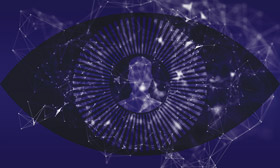

I’ve recently come across a number of senior management in some operations saying their CCTV systems are ‘useless’ and have become just a way of seeing what happened at the crime scene afterwards.
At the same time, I’ve been working with clients where I’ve been involved with training where a central focus is on early detection and protection and there have been some major ongoing successes in their work areas. All of these parties have similar camera systems, video management systems, and a capacity to call for response unit or person of some kind. However, the difference results from where there are people who are aware of what is essential to a successful CCTV strategy and this complemented by trained staff working for them who are capable of operating the systems effectively.
It seems that a lot of the CCTV systems out there are largely for show, or to retrieve information afterwards. Expensive technology purchases turn out to be white elephants, or only show a small amount of what the potential contribution could be.
Interestingly enough, the senior managers are often giving the answers on why their systems aren’t effective when they are talking about them. ‘Operators are looking at all these screens and aren’t seeing anything’ is a common comment. Both the way cameras are displayed, and the ability of operators to see things and understand what they are looking for are common issues.
Yet these factors go to the heart of why CCTV systems fail. So, what are the things that are preventing CCTV systems from delivering? Cameras are only one part of the solution, and need to be used effectively as part of an overall security strategy. Similarly, cameras are only one part of the CCTV strategy and I’ve highlighted the factors that make or break CCTV schemes below.
• A risk and crime analysis are essential to understanding what you are wanting from your system and how you should structure your response. This goes to the operational requirements concept that has driven many UK systems for years.
• What you want your cameras to see then leads on from this, and ensures that cameras are looking at the right places with the views that would enable you to identify the events and suspects.
• Understanding crime behaviour and how to detect crimes. Along with this should be an information and analysis base that allows you to do intelligence-based surveillance to enhance your targeting information and success. This information to assist in identification of the precursor conditions of crime can aid substantially in early detection and prevention and can highlight targets of interest, areas and times of risk, and crime types and techniques.
• Displaying the right views in a control room that is designed around purpose. One of the most common response in camera views is to throw as many camera views up on large screens as possible. The result is postcard sized camera views on monitors which are almost impossible to view any key crime behaviour on, despite potentially good cameras installed.
• The most relevant cameras on display at the most relevant times. If the camera display on your monitors is the same all the time during the day, there is a good chance that most of the cameras are not aligned with the shifting risk conditions that you face. You need a VMS that can adjust to a viewing strategy that allows you to see the most important cameras at the most important times.
Technology distributors promise that relying on video analytics and ‘intelligent systems’ will solve the problem, ‘displaying only critical crime scenes and behaviours whenever they occur’. Without doubt technology has benefits including the breadth and area wide coverage, but it needs to be integrated carefully into a CCTV approach. Invariably the technology doesn’t perform as well as expected in detection, and in almost all cases has to be verified by human operators. I’ve discussed previously issues around false alarm rates and false negatives as well that can result from such systems. If the technology is not aligned with an ongoing comprehensive surveillance approach, benefits will be temporary and limited.
• I continually struggle with the idea that people are willing to spend millions on systems, and then pay virtually no regard to the people who are chosen to operate it. This is in an industry where many contractors are paying people some of the lowest wages in the community. At the same time, there is huge potential among some of these people who simply haven’t had the chance to access the opportunities that could have made a big difference in their lives.
• I’ve seen people with incredible potential working as security guards or higher. The key success factor with CCTV is to identify the top potential performers in terms of cognitive and observation abilities, visual analysis, people recognition, communication, and essential personality attributes like keeping calm under pressure and perseverance and persistence. Industry research has shown that choosing the right surveillance people can increase performance of the same system multiple times. Yet companies persist in accepting the lowest tenders from service providers and are ignorant of the selection criteria and standards of people operating their highly sophisticated systems. I still find many control room operators simply have no idea of what they are looking for in order to detect crime and no crime analysis behaviour skills.
• I’ve highlighted the role of response people in the past, and how without an effective response seeing things on camera has little effect. The responses can deter, or lead to the apprehension of people committing the crime. Related to this is an effective follow through with successful prosecution and penalties. I’ve seen people who have been stealing from one store and who have been apprehended, popping up at another store in the same chain the next day and doing the same thing again. This is incredibly frustrating to the CCTV operators and response people, and makes people question their purpose for being there. While companies managing private space may be able to ban these suspects from their premises, not all private space is so easily controlled, for instance shopping centres, and this cannot apply to public space.
• Review and feedback loops to look at what has happened and to feed that back into improving system capabilities. The feedback also plays a major part in improving operator learning, morale, and motivation where things are getting done. It also sets a standard for all personnel that they should be aware of.
I’ve seen CCTV service providers and contractors come and go from many CCTV schemes and fluctuations in the effectiveness of different sites. However, the highest performing sites and the most consistent sites focus on all the above. Failure to address one or the other inevitably leads to a downturn in performance, while addressing all of them almost always leads to a superior operation that people are really proud of and believe in.

Dr Craig Donald is a human factors specialist in security and CCTV. He is a director of Leaderware which provides instruments for the selection of CCTV operators, X-ray screeners and other security personnel in major operations around the world. He also runs CCTV Surveillance Skills and Body Language, and Advanced Surveillance Body Language courses for CCTV operators, supervisors and managers internationally, and consults on CCTV management. He can be contacted on +27 11 787 7811 or [email protected]
| Tel: | +27 11 787 7811 |
| Email: | [email protected] |
| www: | www.leaderware.com |
| Articles: | More information and articles about Leaderware |

© Technews Publishing (Pty) Ltd. | All Rights Reserved.